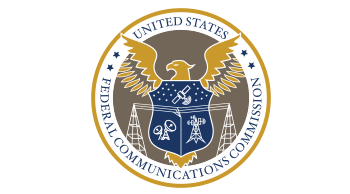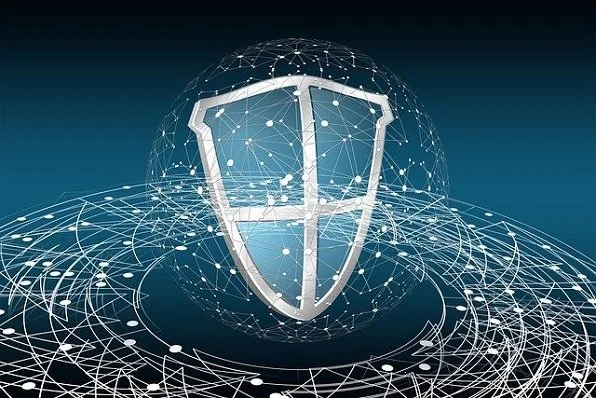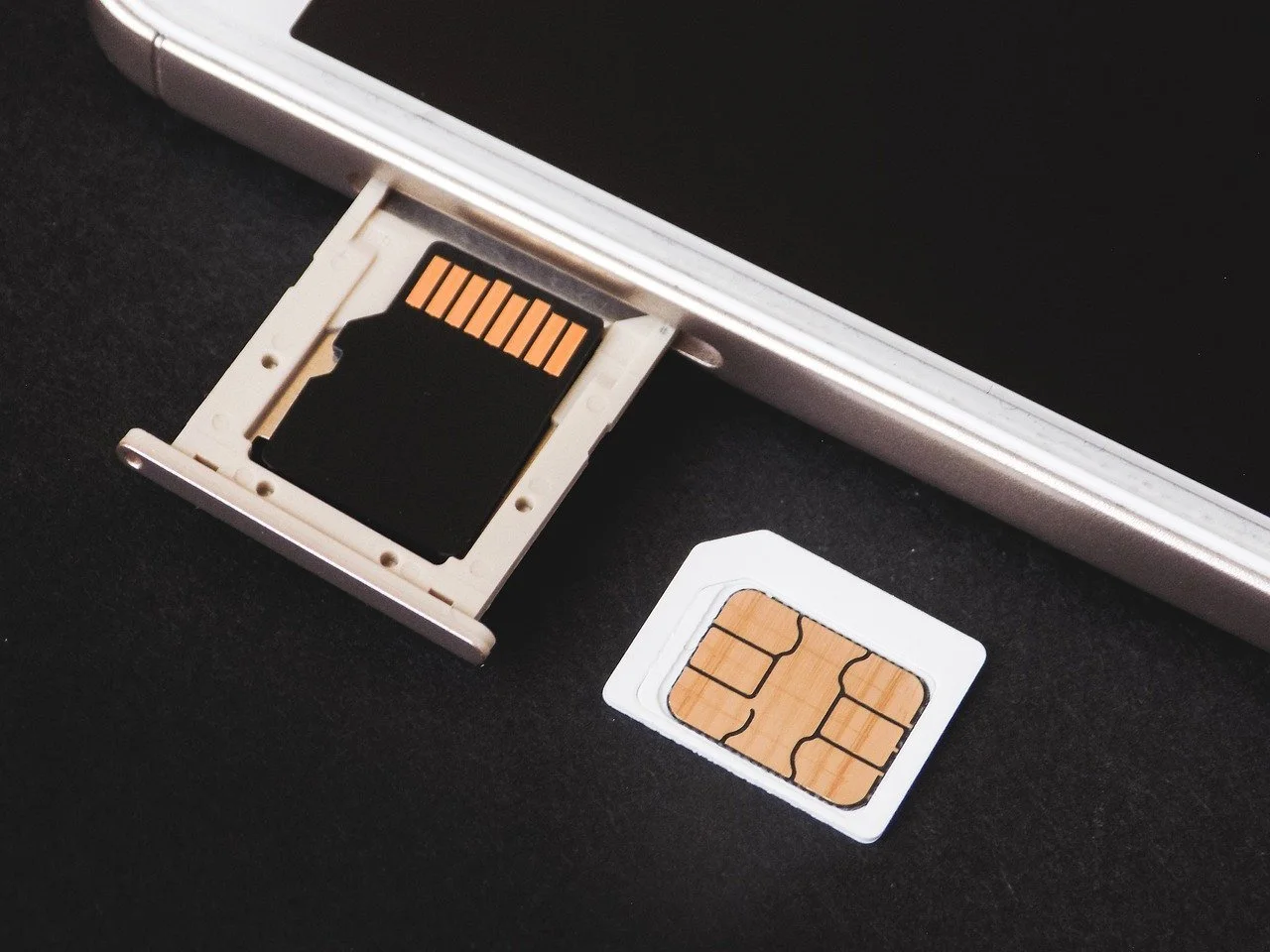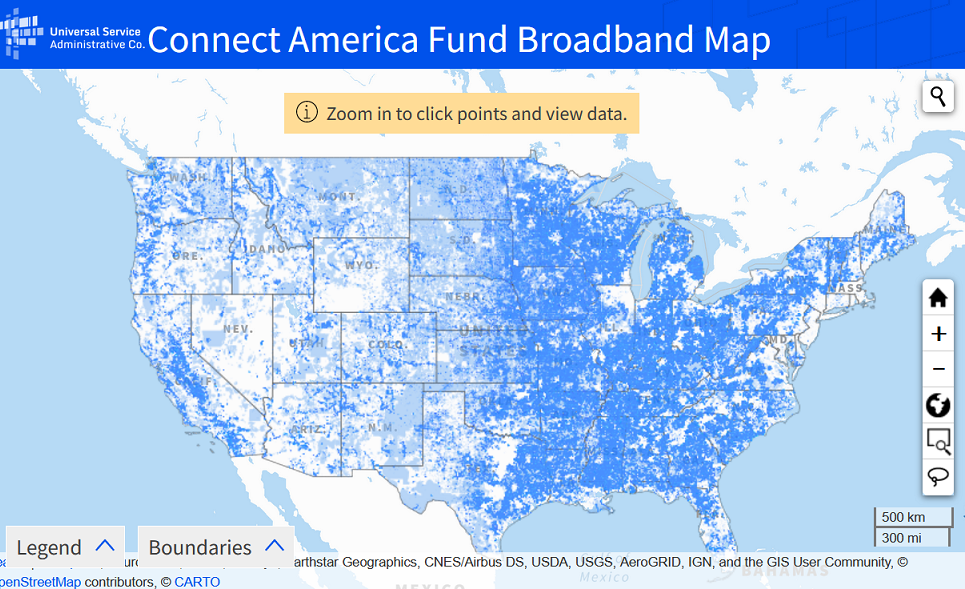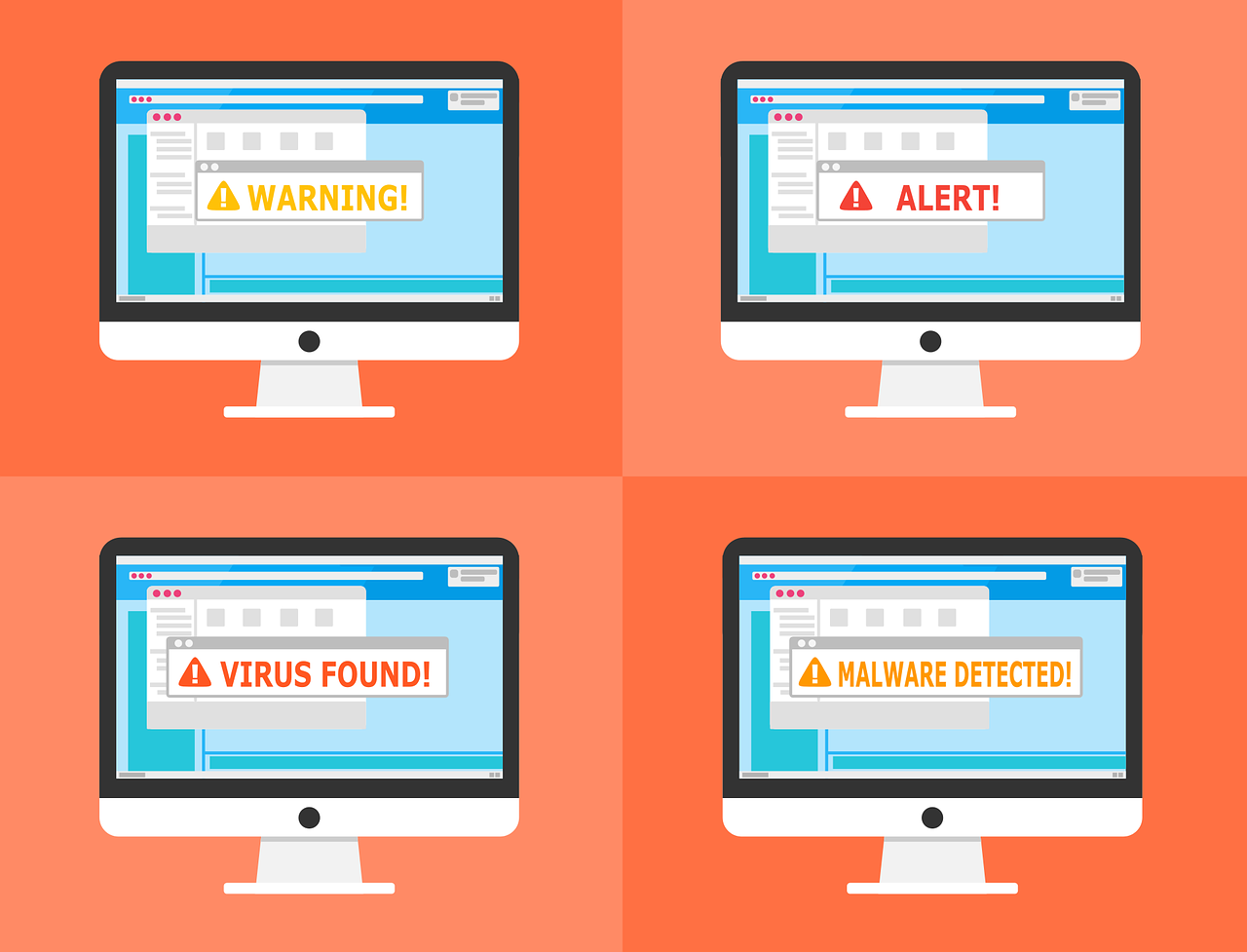News Update - July 2023
FCC Issues $20 Million Notice Of Apparent Liability For Forfeiture Against Q Link Wireless LLC & Hello Mobile Telecom LLC For Violating CPNI Rules
July 28, 2023 – The Federal Communications Commission (FCC) has issued a Notice Of Apparent Liability For Forfeiture against Q Link Wireless LLC and Hello Mobile Telecom LLC for failing to safeguard customer proprietary network information (CPNI). The FCC found that there were at least 500 apparent violations of the FCC’s CPNI rules during the relevant time period of the violations, resulting in a proposed penalty of $20,000,000. Q Link and Hello Mobile are wholly owned by Quadrant Holdings Group LLC, which in turn is wholly owned by Quadrant’s Chief Executive Officer, Mr. Issa Asad. The FCC’s Enforcement Bureau’s opened an investigation into Q Link after the website Ars Technica published an article claiming that a security flaw in Q Link’s My Mobile Account app potentially exposed the private information of an unknown number of Q Link subscribers. The Enforcement Bureau then issued a Letter of Inquiry to Quadrant, directing Quadrant and Q Link and Hello Mobile to provide information and documents regarding their duty to protect CPNI and other proprietary information under Section 222 of the Communications Act and Section 64.2010 of the FCC’s rules. After the companies failed to respond, the Enforcement Bureau issued a Notice of Apparent Liability initially proposing a $100,000 forfeiture. Ultimately, the investigation led the FCC to conclude the following:
The companies’ methods for controlling access to CPNI apparently violate the requirement to “take reasonable measures to discover and protect against attempts to gain unauthorized access to CPNI” in Section 64.2010(a) of the FCC’s rules, as well as Section 222 of the Communications Act which requires carriers to protect customer information;
The companies’ practice of using customer readily available biographical information and account information as a default method to authenticate users apparently violates Section 64.2010(c) of the FCC’s CPNI rules; and
The method through which Q Link customers can access their accounts on the website, and reset their passwords, in the case of lost or forgotten login credentials apparently violates Section 64.2010(e) of the FCC’s CPNI rules.
Final Agenda For FCC Open Meeting On August 3, 2023
July 27, 2023 – The Federal Communications Commission has released the following final agenda for its next open meeting scheduled for 10:30 a.m. on Thursday, August 3, 2023:
Advancing Understanding of Non-Federal Spectrum Usage – The Commission will consider a Notice of Inquiry that would initiate a technical inquiry into how to obtain more sophisticated knowledge of real-time non-Federal spectrum usage—and how the Commission could take advantage of modern capabilities for doing so in a cost-effective, accurate, scalable, and actionable manner. The Notice of Inquiry would explore the potential to advance the Commission’s understanding of commercial spectrum usage by leveraging new data sources, methods, and technologies such as artificial intelligence and machine learning in an increasingly congested radiofrequency environment. (Docket No. 23-232)
Updating Digital FM Radio Service – The Commission will consider an Order and Notice of Proposed Rulemaking seeking comment on proposed changes to the methodology used to determine maximum power levels for digital FM broadcast stations and to the process for authorizing digital transmissions at different power levels on the upper and lower digital sidebands. (MB Docket No. 22-405)
Affordable Connectivity Program High-Cost Benefit – The Commission will consider a Sixth Report and Order which would implement the Affordable Connectivity Program (ACP) high-cost area benefit, providing a discount of up to $75 per month for broadband services provided in qualifying high-cost areas, by participating ACP providers. (Docket No. 21-450)
Enforcement Bureau Action – The Commission will consider an enforcement action.
FCC Chairwoman Circulates Section 706 Notice of Inquiry; Proposes New Definition Of Fixed Broadband: 100/20 Mbps
July 25, 2023 – Federal Communications Commission (FCC) Chairwoman Jessica Rosenworcel has circulated a draft Notice of Inquiry (NOI) to initiate the FCC’s evaluation of the state of broadband deployment across the country, as required by Section 706 of the Telecommunications Act of 1996. Generally, Section 706 directs the FCC to annually inquire whether advanced telecommunications capability is being deployed to all Americans in a reasonable and timely fashion. Advanced telecommunications capability is described as high speed, switched, broadband telecommunications capability that enables users to originate and receive high-quality voice, data, graphics, and video telecommunications using any technology. If the FCC determines that broadband is not being deployed in a timely manner, Section 706 requires the FCC to take immediate action to accelerate broadband deployment by removing barriers to infrastructure investment and promoting competition. In the NOI, Chairwoman Rosenworcel proposes that the FCC “consider several crucial characteristics of broadband deployment, including affordability, adoption, availability, and equitable access.” Notably, the NOI proposes to increase the national fixed broadband standard to 100 megabits per second (Mbps) for download and 20 Mbps for upload. The FCC’s current definition of fixed broadband stands at 25/3 Mbps, which was set in 2015. The NOI proposes to set a separate national goal of 1 Gbps/500 Mbps for the future. As part of the announcement, Chairwoman Rosenworcel provided the following statement: “It’s time to connect everyone, everywhere. Anything short of 100% is just not good enough.”
FCC Releases Order Creating Enhanced A-CAM Program
July 24, 2023 – The Federal Communications Commission (FCC) has approved and released a Report And Order creating an Enhanced Alternative Connect America Cost Model (A-CAM) program. Rural rate-of-return carriers that opt in to the Enhanced A-CAM program will receive model-based funding for a 15-year term in exchange for deploying 100/20 Mbps or faster broadband service and voice service to all locations in their service areas by the end of 2028. Current A-CAM I and A-CAM II participants, as well as rate-of-return carriers receiving legacy support are eligible to enter the Enhanced A-CAM program. The 15-year term of support will begin in 2024. Accompanying the Report And Order is a Notice Of Proposed Rulemaking that seeks comment on further reforms to the legacy rate-of-return universal service system. Also included is a Notice Of Inquiry that seeks comment on “methods for modifying the Universal Service Fund’s high-cost program to support ongoing expenses for broadband networks in light of the Bipartisan Infrastructure Law and other recent federal and state efforts.”
FCC Chairwoman Proposes New Voluntary Cybersecurity Labeling Program For Smart Devices
July 18, 2023 – Federal Communications Commission Chairwoman Jessica Rosenworcel has circulated a Notice of Proposed Rulemaking (NPRM) to create a voluntary cybersecurity labeling program for smart devices. If adopted, the proposed cybersecurity labeling program would provide consumers with clear information about the security of their Internet-enabled devices, more commonly referred to as “Internet of Things” or “smart” devices. According to the FCC news release announcement, the NPRM “outlines a voluntary cybersecurity labeling program that would be established under the FCC’s authority to regulate wireless communications devices based on cybersecurity criteria developed by the National Institute of Standards and Technology (NIST). If the proposal is adopted by a vote of the Commission, it would be issued for public comment, and could be up and running by late 2024.”
Wavelength Defaults On RDOF Winning Bids In California
July 18, 2023 – The FCC’s Wireline Competition Bureau and Office of Economics and Analytics have announced that Wavelength LLC has defaulted on five winning Rural Digital Opportunity Fund (RDOF) bids in California. Wavelength was unable to receive designation as an eligible telecommunications carrier (ETC) by the California Public Utilities Commission, and thereafter, Wavelength’s petition for waiver of the RDOF ETC designation documentation deadline was denied by the FCC. Accordingly, the FCC has determined Wavelength to be in default on its RDOF bids, and subject to forfeiture. In the same Public Notice, the FCC has dismissed LTD Broadband’s request for waiver of the RDOF deadline to submit ETC designation documentation for its RDOF winning bids in South Dakota.
FCC Issues Tentative Agenda For August 3rd Open Meeting
July 13, 2023 – Federal Communications Commission Chairwoman Jessica Rosenworcel has announced the following tentative agenda for the FCC’s next open meeting scheduled for Thursday, August 3, 2023:
Advancing Understanding of Non-Federal Spectrum Usage – The Commission will consider a Notice of Inquiry that would initiate a technical inquiry into how to obtain more sophisticated knowledge of real-time non-Federal spectrum usage—and how the Commission could take advantage of modern capabilities for doing so in a cost-effective, accurate, scalable, and actionable manner. The Notice of Inquiry would explore the potential to advance the Commission’s understanding of commercial spectrum usage by leveraging new data sources, methods, and technologies such as artificial intelligence and machine learning in an increasingly congested radiofrequency environment. (Docket No. 23-232)
Updating Digital FM Radio Service – The Commission will consider an Order and Notice of Proposed Rulemaking seeking comment on proposed changes to the methodology used to determine maximum power levels for digital FM broadcast stations and to the process for authorizing digital transmissions at different power levels on the upper and lower digital sidebands. (MB Docket No. 22-405)
Affordable Connectivity Program High-Cost Benefit – The Commission will consider a Sixth Report and Order which would implement the Affordable Connectivity Program (ACP) high-cost area benefit, providing a discount of up to $75 per month for broadband services provided in qualifying high-cost areas, by participating ACP providers. (Docket No. 21-450)
Enforcement Bureau Action – The Commission will consider an enforcement action.
Final Agenda For FCC’s July 20th Open Meeting
July 13, 2023 – The Federal Communications Commission has released the final agenda for its open meeting on Thursday, July 20, 2023 at 10:30 am:
E-Rate: Enhancing Support for Connectivity in Tribal Communities – The Commission will consider a Report and Order and Further Notice of Proposed Rulemaking which would adopt rules to enhance Tribal communities’ access to the E-Rate program by streamlining certain program rules, making Tribal college and university libraries eligible for E-Rate support, and reducing administrative burdens in the program. The Commission will also seek comment on ways to further improve and simplify program rules for all E-Rate applicants. (CC Docket Nos. 02-6, 96-45, 97-21)
Ensuring the Reliability and Resiliency of the 988 Suicide & Crisis Lifeline – The Commission will consider a Report and Order to ensure that when there is a communications service outage that potentially affects people’s ability to reach the 988 Lifeline, the Commission and those who provide life-saving 988 crisis intervention services receive timely and actionable information. (PS Docket Nos. 23-5, 15-80; WC Docket No. 18-336)
Preserving Local Radio Programming – The Commission will consider a Report and Order allowing a limited group of existing channel 6 low power television stations to continue to provide analog FM radio service as an ancillary or supplementary service under specified rules. (MB Docket No. 03-185)
FCC Chairwoman Proposes E-Rate Pilot Program To Support Cybersecurity And Advanced Firewall-Related Services For Eligible K-12 Schools & Libraries
July 12, 2023 – Federal Communications Commission Chairwoman Jessica Rosenworcel has announced a proposal to create a pilot program that would provide E-Rate support for cybersecurity and advanced firewall-related services for eligible K-12 schools and libraries. Chairwoman Jessica Rosenworcel shared high-level details of the proposal in a speech before the School Superintendents Association and the Association of School Business officers. She said the proposed pilot program would work in tandem with federal agency partners to invest up to $200 million over three years to harden the cyber defenses and determine the most effective methods to protect schools and libraries. According to the FCC news release announcement, the pilot program would be established “within the Universal Service Fund, but separate from the E-Rate program, to ensure gains in enhanced cybersecurity don’t come at a cost of undermining E-Rate’s success in promoting digital equity.” In a December 2022 Public Notice, the FCC sought comment on using E-Rate funds to support next-generation firewalls and services, as well as numerous related issues.
USAC Files E-Rate Cost & Funding Data On Firewall Protection
July 12, 2023 – The Universal Service Administrative Company (USAC) has filed two reports on E-Rate funding requests for firewall protection and services. The first report provides high-level data on firewall protection as part of total category one funding requests from 2016 to 2022. The second report provides high-level data on firewall services and components as part of total category two funding requests from 2016 to 2022. USAC filed the information upon a request from FCC staff.
FCC Chairwoman Circulates New Rules To Prevent SIM Swapping
July 11, 2023 – Federal Communications Commission Chairwoman Jessica Rosenworcel has circulated a Report and Order that would revise the FCC’s Customer Proprietary Network Information (CPNI) and Local Number Portability rules to prevent SIM Swapping. A SIM swap occurs when a new SIM card is registered with a phone number – swap out the old SIM for the new. A SIM card – subscriber identity module or subscriber identification module – is a small, removable chip in a mobile device that allows it to connect to a wireless provider’s network. A fraudulent SIM swap occurs when criminals link a new SIM to a victim’s phone number, typically through the use of social engineering. Sometimes, however, criminals work with an employee of a wireless provider to make it happen. The FCC’s new rules, if adopted, would “require wireless providers to adopt secure methods of authenticating a customer before redirecting a customer’s phone number to a new device or provider.” Wireless providers also would be required “to immediately notify customers whenever a SIM change or port-out request is made on customers’ accounts, and take additional steps to protect customers from SIM swap and port-out fraud.” The Report and Order is accompanied by a Further Notice of Proposed Rulemaking which seeks comment on “ways to further harmonize the[] rules with existing CPNI rules and additional steps the Commission can take to harmonize government efforts to address SIM swap and port-out fraud.”
USAC Updates Connect America Fund Broadband Map
July 7, 2023 – The Universal Service Administrative Company (USAC) has released an updated version of the Connect America Fund (CAF) Broadband map that reflects broadband deployment data as of December 31, 2022. The CAF map is an interactive online map that shows the impact of high-cost universal service fund support on broadband expansion in rural America. Information in the CAF map comes directly from broadband providers who submit broadband deployment data annually through USAC’s High Cost Universal Broadband (HUBB) portal. The dataset underpinning the map is available online here. The new map shows geographic areas that are eligible for CAF support, as well as the specific fixed locations where broadband providers have built out broadband service using the following types of CAF support:
Connect America Fund Phase II Model (CAF II Model Support)
Connect America Fund Phase II Auction (CAF II Auction Support)
Alternative Connect America Cost Model (ACAM Support)
Alternative Connect America Cost Model II (ACAM II Support)
Connect America Fund Broadband Loop Support (CAF BLS Support)
Rural Broadband Experiments (RBE Support)
Rural Digital Opportunity Fund (RDOF Support)
Alaska Plan (AK Plan Support)
Bringing Puerto Rico Together (Uniendo a Puerto Rico) Fund and the Connect the USVI Fund (PR Fixed Support)
FCC Extends Pause Of Phase-Out Of Lifeline Support For Voice-Only Services & Increase In Lifeline Minimum Mobile Broadband Data Capacity
July 7, 2023 – The FCC’s Wireline Competition Bureau has extended, for an additional year, the waiver pausing both the phase-out of Lifeline support for voice-only services and the increase in Lifeline minimum service standards for mobile broadband data capacity. The pause will extend until December 1, 2024. As a result, the Lifeline program maintains $5.25 per month support for services that meet only the voice minimum service standard, and the 4.5 GB minimum service standard for mobile broadband data capacity. Without the extension, the $5.25 per month support for minimum voice service would be eliminated in most areas on December 1, 2023, and the mobile broadband data capacity minimum would rise to 20 GB per month.
Mergers & Acquisitions: GigFire Acquires Rural Comm In Illinois
July 7, 2023 – GigFire (formerly known as LTD Broadband) has announced it has acquired Rural Comm, a communications services provided located in Farina, IL. GigFire operates in ten states, primarily in the Midwest region of the U.S. With its acquisition of Rural Comm, “GigFire will build fiber to the home in over 150 towns and cities in Illinois and upgrade the existing network infrastructure to deliver gigabit speeds.” Terms of the deal were not disclosed.
FCC Announces Opening Of Next Broadband Data Collection Filing Window
July 3, 2023 – The FCC’s Broadband Data Task Force has announced that the next Broadband Data Collection (BDC) filing window opens Monday July 3, 2023. Specifically, starting July 2, 2023, facilities-based broadband service providers may begin to file in the BDC system data that reflects where their mass-market broadband internet access services are available as of June 30, 2023. Facilities-based broadband service providers, as well providers of fixed voice services, must also submit subscription data as of June 30, 2023 required under Form 477 in the BDC system. All mass-market broadband internet access service availability data and subscription data must be submitted no later than September 1, 2023.
FCC Chairwoman Sends Letter On RDOF Implementation To Senator Cindy Hyde-Smith
July 1, 2023 – Federal Communications Commission Chairwoman Jessica Rosenworcel has sent a letter to Senator Cindy Hyde-Smith (MS-R) which provides an update on the implementation of the Rural Digital Opportunity Fund (RDOF). Chairwoman Rosenworcel’s letter provides the following information:
When the RDOF auction concluded, a total of 180 bidders were preliminarily awarded funding. After bidding consortia were allowed to distribute winning bids among their members, a total of 417 providers ultimately filed long-form applications with the FCC.
To date, the RDOF program has authorized over $6 billion in funding to bring primarily gigabit broadband service to over 3.4 million locations in 47 states. Hundreds of RDOF winners have begun deploying broadband networks to connect unserved areas.
The FCC sent letters to 197 RDOF applicants where data suggested certain RDOF locations were already served by an existing carrier or should not have been included in the auction. This resulted in the removal of nearly 5,000 census blocks from the program.
The RDOF auction allocated $9.2 billion of the RDOF budget to winning bidders, and, after long-form review, the FCC authorized just over $6 billion.
The FCC will collect only enough RDOF funding through the USF contribution process to match the approximately $6 billion committed. The FCC does not have support in reserve readily available for reallocation to the extent that the total amount authorized for RDOF fell below the projected budget.

